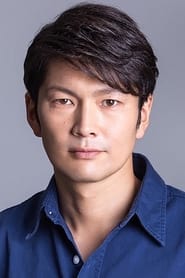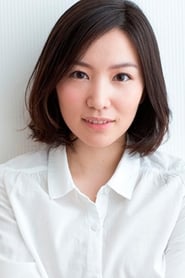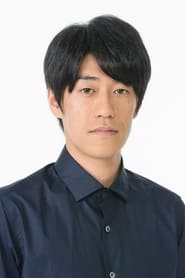
Ask Your Own Question
What is the plot?
Hisame, a graduate student, meets Ima, a woman 16 years his senior, and quickly falls in love with her. Ima is free-spirited and lives by unconventional values, embracing a "multiple love" lifestyle where partners have mutual consent to see others without jealousy or betrayal. Ima has a high school daughter, Chinatsu, and has previously lived with two boyfriends. Hisame, initially confused by Ima's open approach to relationships, gradually accepts and joins their family as a "third boyfriend."
Ima's daughter Chinatsu has long supported her mother but struggles with the complexity and secrecy of their family dynamic, unable to share it with others. Meanwhile, Kinuka, a housewife and Ima's old high school friend, unexpectedly reconnects with Ima. Kinuka is trapped in a traditional marriage where her husband emotionally abuses her through infidelity, which she tolerates as normal. Kinuka learns about Ima's lifestyle and begins to question her own situation.
Throughout the series, Hisame navigates his feelings of jealousy and confusion while trying to understand Ima's philosophy of love. Ima remains calm and unjealous even when Hisame or her other partners have other lovers, emphasizing trust and honesty. The three of them, along with Ima's daughter Chinatsu, form a complex but open family unit.
Key confrontations occur when Hisame faces moments of insecurity about Ima's other relationships, but Ima reassures him by explaining her belief in love without possession. Chinatsu confronts her own feelings about her mother's lifestyle, especially when peers at school question her family. Kinuka, inspired by Ima's courage, begins to confront her husband about his emotional abuse, leading to tense and emotional exchanges.
In the final episodes, Hisame fully embraces the polyamorous family structure, and Ima's daughter Chinatsu finds a way to accept and openly live with her mother's unconventional love life. Kinuka makes a decisive break from her emotionally abusive marriage, empowered by what she has learned from Ima. The series ends with the characters redefining what love and family mean to them, living together with mutual respect and understanding despite societal norms.
The story unfolds over 10 episodes, each about 55 minutes, focusing on the emotional and relational developments among Hisame, Ima, Chinatsu, and Kinuka, highlighting the challenges and growth in their intertwined lives. The narrative is a detailed exploration of polyamory, family bonds, jealousy, and societal expectations, told through intimate and often intense personal interactions.
More TV Shows Like This
Browse All TV Shows →
What is the ending?
The ending of If She Calls That Love Too (2025) reveals Kotaro coming to terms with his wife Nerura's secret, ultimately choosing to embrace their complex relationship and the challenges it brings. The story closes on a note of cautious hope, with Kotaro and Nerura facing their future together, having confronted the truths that tested their love.
Expanded narrative of the ending scene by scene:
The final episodes open with Kotaro deeply troubled after discovering Nerura's secret, which had dramatically altered his perception of their marriage. The secret, though not explicitly detailed in the search results, is implied to be significant enough to challenge Kotaro's long-held beliefs about love and trust.
In the first key scene, Kotaro is shown alone in their apartment, reflecting on the moments that led to this revelation. The camera lingers on his conflicted expressions--his initial shock, followed by a gradual shift toward understanding. This internal struggle is portrayed through close-ups and muted lighting, emphasizing his isolation and emotional turmoil.
Next, Nerura appears, maintaining her usual calm and inscrutable demeanor. She does not offer immediate explanations but instead waits for Kotaro to process the information in his own time. Their interaction is quiet but charged, with subtle gestures conveying a complex mix of vulnerability and guardedness.
As the narrative progresses, Kotaro seeks out moments of solitude and conversation with close friends, trying to reconcile his feelings. These scenes highlight his transformation from a carefree bachelor to a man grappling with the realities of commitment and the imperfections of love.
The climax unfolds when Kotaro confronts Nerura directly. In a poignant scene set in a softly lit room, they exchange honest words about fear, acceptance, and the meaning of love. Kotaro admits his fears but also his willingness to continue loving her despite the unknowns. Nerura, in turn, reveals more about her past and the reasons behind her secret, allowing Kotaro a deeper understanding.
The final scene shows Kotaro and Nerura together, not in grand romantic gestures but in a quiet, shared moment of mutual acceptance. They sit side by side, looking out a window at the cityscape, symbolizing their readiness to face the future together. The tone is hopeful yet realistic, acknowledging that love can be complicated and imperfect.
Regarding the fate of the main characters:
- Kotaro ends the story having grown emotionally, choosing to stay with Nerura and accept the complexities of their relationship.
- Nerura remains enigmatic but opens up enough to allow Kotaro to understand her, suggesting a tentative but genuine connection.
No other main characters are detailed in the ending from the available information. The story's conclusion centers on the intimate resolution between Kotaro and Nerura, emphasizing themes of acceptance, trust, and the multifaceted nature of love.
Is there a post-credit scene?
The TV show If She Calls That Love Too produced in 2025 does not have any publicly documented post-credit scene. None of the search results or available sources mention a post-credit scene for this show. The search results primarily discuss post-credit scenes in other 2025 productions like Marvel movies and Superman (2025), but there is no information related to If She Calls That Love Too having such a scene. Therefore, it can be concluded that either the show does not include a post-credit scene or it has not been publicly noted or highlighted as of now.
What is the nature of Ima's relationships with her three lovers in 'If She Calls That Love Too'?
Ima, a single mother and illustrator, is involved in a sincere and consensual polyamorous relationship with three men: Itaru, the manager of an Italian bar; Ao, a salesman for a beauty manufacturer; and Hisame, a graduate student about a decade younger than her. Each relationship is distinct, with Hisame initially shocked to learn about the others when invited to Ima's home. The story explores the dynamics and emotional complexities of these overlapping relationships.
How does Hisame's character develop after discovering Ima's other lovers?
Hisame, a graduate student working at a cafe, is initially attracted to Ima and tries to advance their relationship. Upon visiting Ima's house, he is bewildered to find her two other lovers, Itaru and Ao. This revelation challenges Hisame's understanding of love and relationships, leading to his emotional growth as he navigates this unconventional arrangement.
What role does Ima's daughter Chinatsu play in the storyline?
Chinatsu, Ima's high school daughter, is part of the family dynamic that adds complexity to Ima's relationships. Her presence influences Ima's decisions and emotional state, especially as the story progresses to show changes like Ima's move to Bangkok and Chinatsu going to college, which affect the household where the lovers once lived together.
How do the professions and personalities of Ima's lovers influence their relationships?
Itaru, the Italian bar owner, Ao, the beauty product salesman, and Hisame, the graduate student, each bring different perspectives and lifestyles to their relationships with Ima. Their professions and personalities create varied interactions and emotional textures within the polyamorous setup, highlighting contrasts and complementarities that shape the narrative's exploration of love beyond traditional norms.
What significant events occur in the first episode that set the tone for the series?
In episode 1, Hisame notices Ima, a regular older customer at the cafe where he works, and is drawn to her. When Ima invites him to eat Mont Blanc cake, he initially declines, but later sees her at the cake shop. Ima then invites Hisame to her home, where he discovers her two other lovers, leading to his shock and confusion. This episode establishes the unconventional relationship structure and the emotional challenges the characters face.
Is this family friendly?
The TV show If She Calls That Love Too (2025) is not fully family-friendly for children or sensitive viewers due to its mature themes. It explores complex adult relationships involving age-gap romance, unconventional "multiple love" arrangements based on mutual consent, emotional conflicts, and issues like infidelity and emotional abuse within marriages.
Potentially objectionable or upsetting aspects include:
- Sexual relationships and themes involving adults, including non-traditional relationship dynamics.
- Emotional abuse and complicated family situations.
- Jealousy and relationship conflicts that may be intense or challenging for younger viewers or sensitive individuals.
- The show deals with mature emotional and social issues that are more suitable for adult audiences rather than children or tweens.
There is no indication of overt violence, racism, or extreme language, but the emotional and sexual content suggests it is best suited for mature viewers rather than a family audience with children.

































